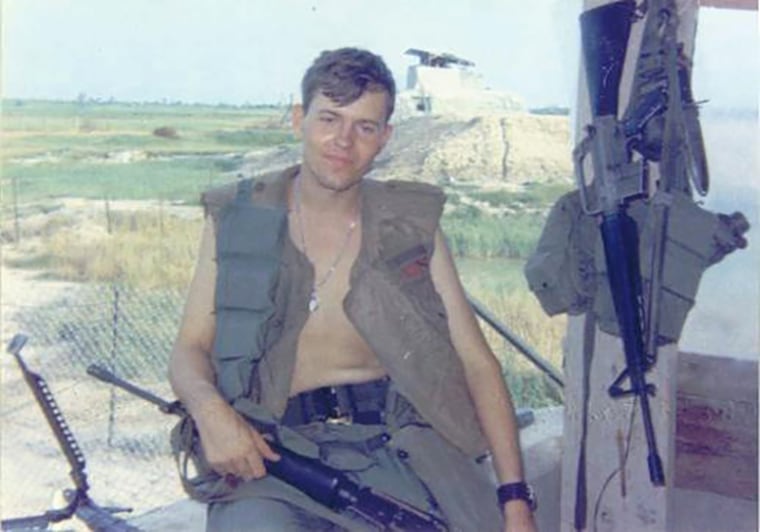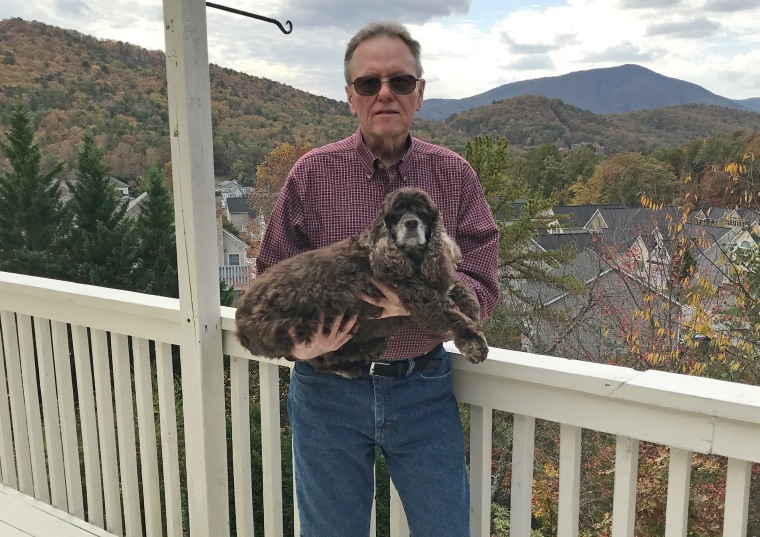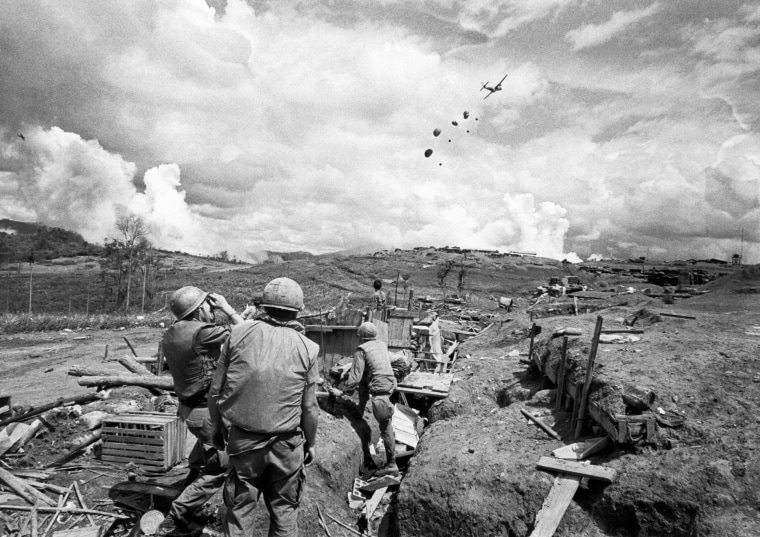My boots first stepped down on Vietnam’s soil in midsummer 1969, in between the Apollo moon landing and the Woodstock music festival. I had just wrapped up my teenage years and thought I was an adult, ready and able to face the world, full as it was with social and cultural change.
In truth, I was immature, had no clue about my future and hadn’t been toughened up by life (though I was not born into privilege). I also had no street smarts, thinking justice would ultimately prevail and the good guys would always win. Then came reality in the form of an enlistment in the U.S. Army.
I did my job diligently and learned to react instantly to bad things. They happen very fast, and they are very loud. I survived, but some of my buddies did not.
Growing up in the countryside of North Carolina, I went to public schools and was taught stereotypical, mainstream American values. By the mid-’60s, I felt pulled between what I had been taught by my parents (mind your elders; children are to be seen and not heard; if I want your opinion I’ll ask for it) and the rapid changes in music, dress, hairstyles and sexual mores, not to mention national politics, swirling around me. Even so, it was deeply instilled in me that a proper belief system had to be supported by organized religion (Christianity) and a firm belief in an afterlife. I also still had faith in the “American Way,” promoting democracy, capitalism, justice and equality for all. In short: I was naïve and ripe for harvest by our elected officials.
My ancestors can be traced back to the Virginia Colony in 1639. Some of my kin served during the American Revolution; others fought on both sides of the Civil War. My grandfather was an infantry doughboy in WWI. The draft was a fact of life for males of my generation when we turned 18, and it seemed natural and right to step up and serve. My family history led me to believe that to do otherwise was evidence of cowardice.

When my draft notice came in 1968, there were already hundreds of U.S. troops dying each week in Vietnam. The Tet Offensive earlier that year demonstrated the determination and tenacity of our enemy. The war seemed to dominate the news, and more and more often our military’s efforts in Vietnam weren’t transmitted in a favorable light.
Frankly, I was scared as hell when I received my papers. But I never considered going to Canada or claiming to have a bone spur. I enlisted in December 1968, completed training during the first half of the next year and received my orders for Vietnam.
Upon arrival and deployment in the field, I quickly learned one’s Military Occupational Specialty (i.e., job) didn’t mean much. I was supposed to be in military intelligence and critical communications, but that was seldom what I did. Instead, my role was to do whatever had to be done. On-the-job training only became more commonplace as troops were withdrawn under President Richard Nixon. I learned a lot, mostly that there was not a square foot of Vietnamese territory to which a booby trap, 122 mm rocket or hostile mortar could not eventually find its way. And the enemy owned the night.
Quickly, I experienced enough of the mud, blood and beer that was Vietnam to begin to doubt many things I had taken for granted as being true. From early on, it seemed clear that the long, mind-numbing days and bursts of horror were not helping bring democracy to what was a corrupt South Vietnamese government.
But I did my job diligently and learned to react instantly to bad things. They happen very fast, and they are very loud. I survived, but some of my buddies did not. I am no hero by any means. There were many that were, though. Many. I am just very fortunate to have carried out my tour and returned home in one piece. Physically, at least. My mind is a different story. I’m still working on that one.
The transition from living in a combat zone to being back home continues to this day. When I returned, no one seemed interested in my perspective or wanted to know much about what veterans like me had been through. I didn’t share my experience with anyone because almost no one asked. I never heard, “Thank you for your service” — though I’m not whining; that statement only says to me, “Glad it was you and not me.”
I never had expectations of gratitude or desire for medals. I just wanted a USA that all citizens and residents could be proud of. I still do. Sadly, I do not see respect for all groups and populations that call America home. We used to be the United States of America but now we are very divided. Greed, selfishness and a sense of entitlement seem to have taken us backward regarding women’s issues, race relations, free high-quality education, stewardship of the environment, adequate health care — the list goes on and on.
Yet the same people (mostly old, mostly white, mostly men, mostly Christian, mostly heterosexual) continue to be elected and sent to Washington to make decisions about topics they appear to have a poor understanding of. We Boomers and Greatest Generation folks certainly haven’t seemed to learn much from our involvement in Vietnam. It’s not the millennials and other young people who are the problem these days; it’s the older generations that allowed these changes to be set into motion. It happened on our watch! That’s on us, not them.
I have to live with the memories of my experience in the U.S. Army, and I am filled with regret about what I did and saw in Southeast Asia just so this country could morph into one that I can’t support as I once did. I never fly my flag anymore, except on Memorial Day in memory of buddies I watched give their all. I don’t believe the troops who served with me had any idea the U.S. would now be led by an individual who seems to meet the diagnostic criteria of multiple mental disorders and is supported to the extreme by what resemble blind sheep stuck in the 20th century.

I did not serve — and would not do it again — just so my country could turn away from its earned position as a world leader or become one that would rather build walls than bridges. Veterans Day for me is about honoring those who took an oath, wore a uniform and manned a post; those who put their own self-interest aside for a period of time to preserve all the good things that America has to offer.
The USA stands for something significant in the eyes of the world. We are leaders by example; not by bullying.
The USA stands for something significant in the eyes of the world. We are leaders by example; not by bullying. The fact is that change is a constant, but each of us can do our part to make the changes that come good for all of humanity and not just in our own best interests.
Veterans have done so by making sure that our many freedoms will continue, that we have the opportunity to think for ourselves, speak up and act for positive outcomes. Today seems like a good time for residents and citizens of the U.S. to put down their remotes, set aside their smartphones, get off their duffs and get busy. There’s still lots to be done. Veterans can only ensure everyone has the opportunity to do that work.



